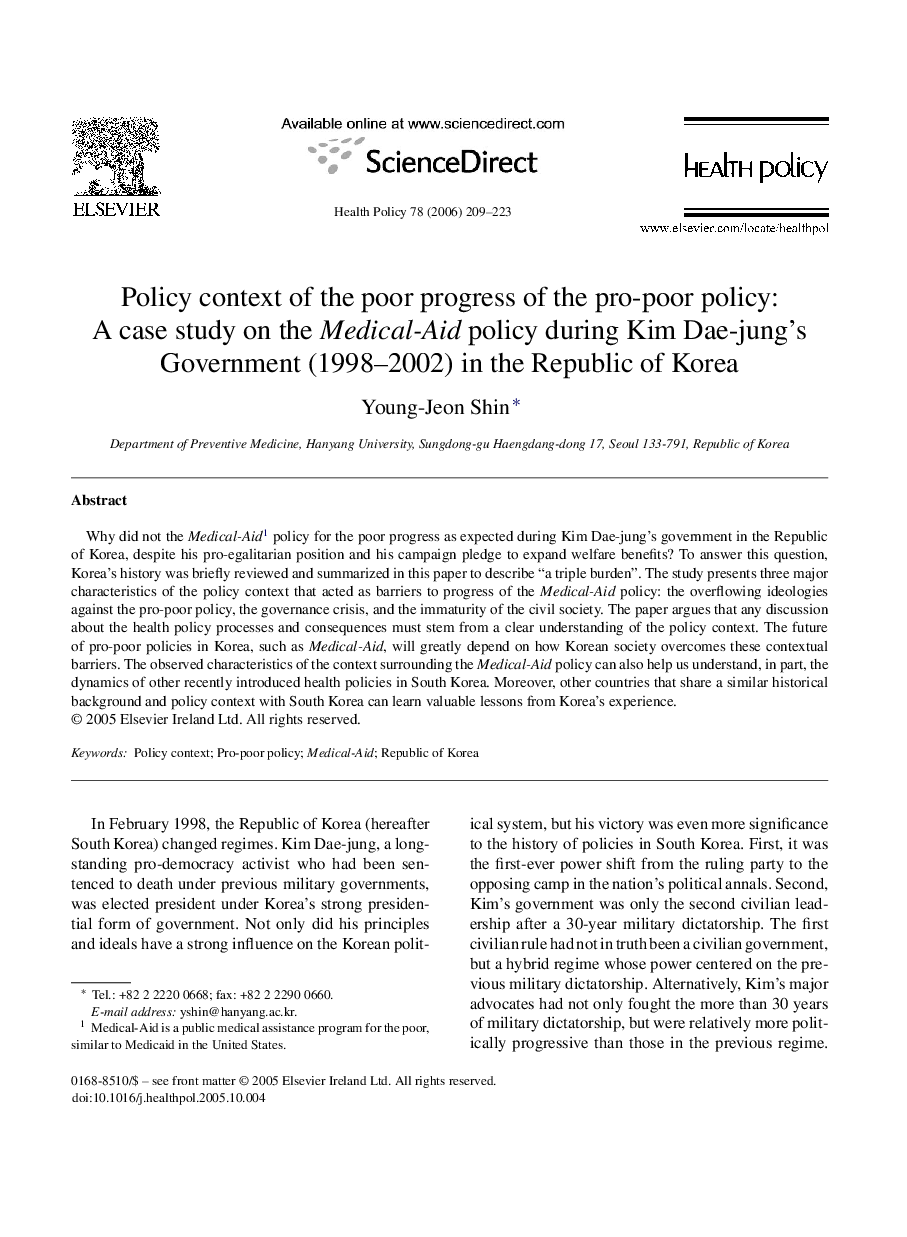| Article ID | Journal | Published Year | Pages | File Type |
|---|---|---|---|---|
| 4199025 | Health Policy | 2006 | 15 Pages |
Why did not the Medical-Aid 1 policy for the poor progress as expected during Kim Dae-jung's government in the Republic of Korea, despite his pro-egalitarian position and his campaign pledge to expand welfare benefits? To answer this question, Korea's history was briefly reviewed and summarized in this paper to describe “a triple burden”. The study presents three major characteristics of the policy context that acted as barriers to progress of the Medical-Aid policy: the overflowing ideologies against the pro-poor policy, the governance crisis, and the immaturity of the civil society. The paper argues that any discussion about the health policy processes and consequences must stem from a clear understanding of the policy context. The future of pro-poor policies in Korea, such as Medical-Aid, will greatly depend on how Korean society overcomes these contextual barriers. The observed characteristics of the context surrounding the Medical-Aid policy can also help us understand, in part, the dynamics of other recently introduced health policies in South Korea. Moreover, other countries that share a similar historical background and policy context with South Korea can learn valuable lessons from Korea's experience.
